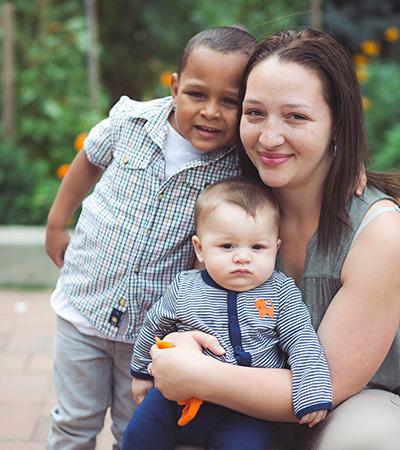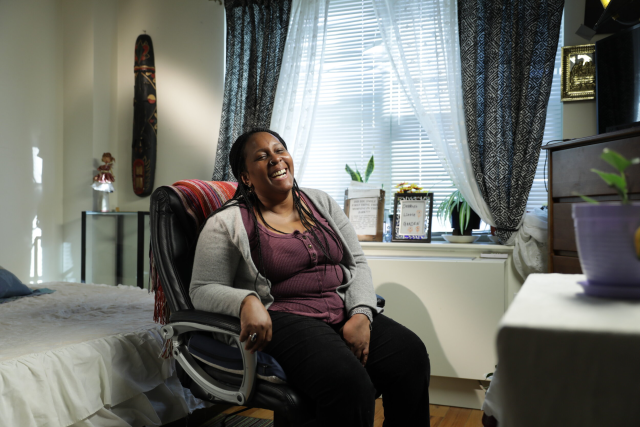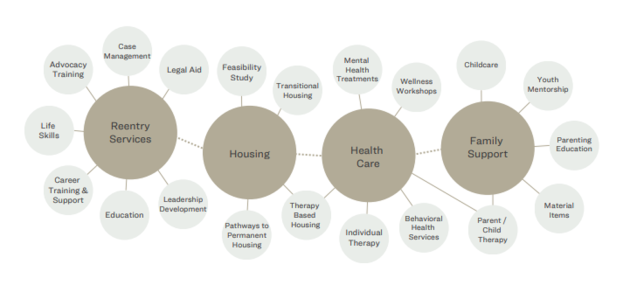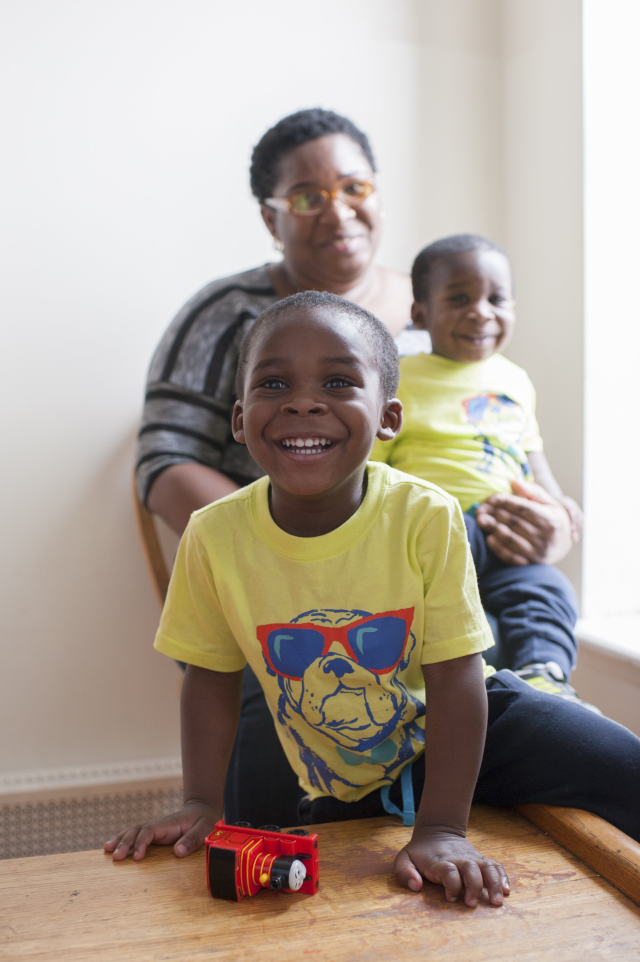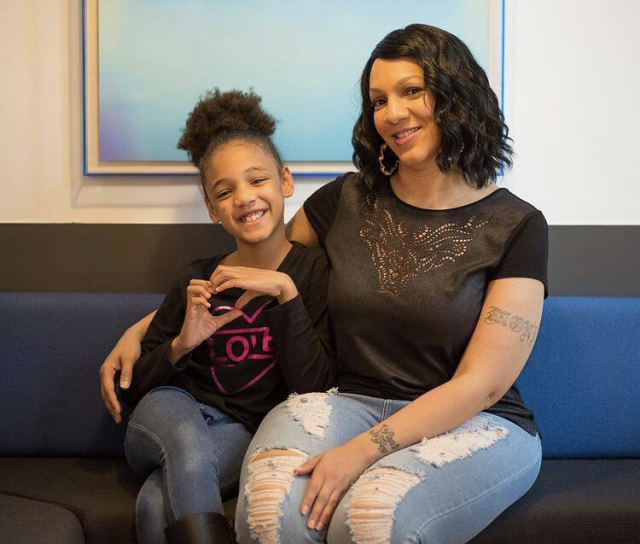Grantee Cohort Spotlight: Women Transitioning from Rikers
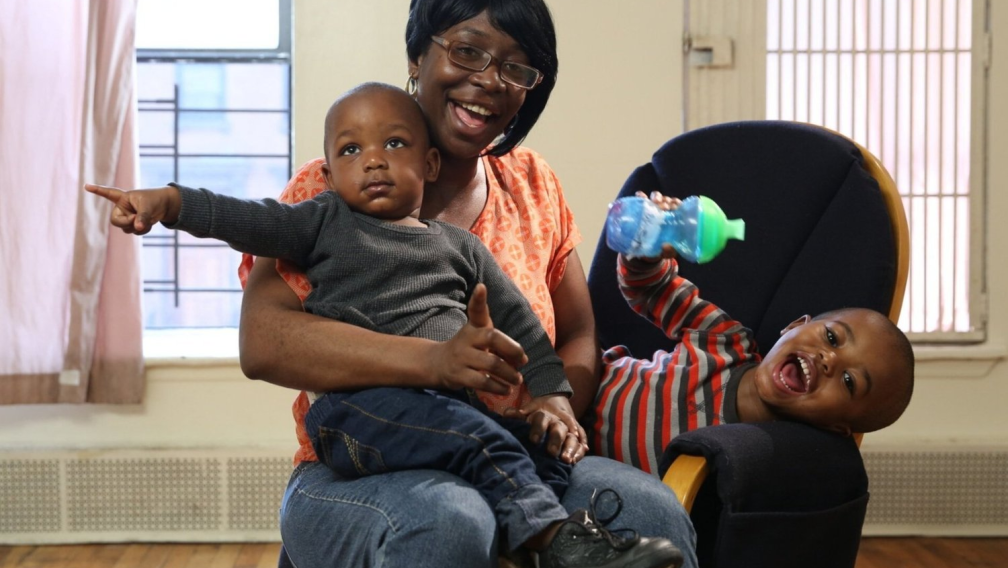
Since 2020, Trinity Church Wall Street has funded a cohort of organizations working to support women transitioning from the Rikers Island jail complex. This cohort was developed to prioritize the historically unmet needs of justice-involved women in response to the New York City Council’s vote to close Rikers Island in late 2019. This update shares highlights from this initiative.
Cohort Overview
- Since 2020, Trinity has granted $5.5 million to cohort organizations and related capacity-building programs. Of this, $3.5 million was contributed by Mother Cabrini Health Foundation (MCHF) via three separate grants to Trinity, which Trinity then re-granted.
- Over three years, grants included programmatic grants, COVID-19 and immigration rapid response grants, and a grant to the Nonprofit Finance Fund, which provided capacity-building opportunities that helped strengthen grantee organizations.
- As of January 2023, the cohort includes six core grantees: A Little Piece of Light (ALPOL), Hour Children, Housing Plus Solutions, Providence House, LifeWay Network, and Ladies of Hope Ministries. Four of these grantees have been funded since cohort initiation in the first cycle of 2020, and two were added more recently.
- Grant amounts range from $100,000-$600,000 and grant terms are either 12 or 24 months, depending on grantee needs, organizational size, and available capacity.
- Collectively, cohort organizations aim to provide direct support to approximately 500 women transitioning from Rikers over the current grant cycle.
Context
With the City Council’s vote to close the Rikers Island jail complex in 2026 (now 2027) and the unveiling of the City’s proposed plan in 2019, Trinity Church Wall Street realized that greater use of alternatives to incarceration, as well as new models for supporting people during community reintegration, would be essential to the successful closing of Rikers. Trinity knew alternatives to incarceration and reintegration support would be particularly important for women at Rikers, as this population is uniquely vulnerable in jail and has distinct needs that have been historically unmet by systems and solutions primarily designed for men.
In 2020, Trinity began to fund a cohort of organizations specifically working with women transitioning from Rikers Island, acting as an intermediary with a grant from MCHF. Trinity’s expertise in housing, homelessness, and incarceration in New York City, paired with MCHF’s strong focus on health-related grantmaking, ensured alignment at the intersection of these key issue areas. Both organizations sought to address the interconnected challenges facing this highly vulnerable population.
Over the last few years, as the political landscape has changed under the Adams administration and the future for many justice-involved New Yorkers at Rikers has become more uncertain, Trinity, in collaboration with MCHF and cohort grantees, has remained focused on the immediate needs of women and adequately addressing reintegration into the community. Since 2020, MCHF has supplemented Trinity’s funding with two more grants that continue supporting this work.
Funders and grantees are working towards a future without Rikers, one with more alternative diversion and reintegration programs that address the unique needs of justice-involved women. This work to build capacity in grantee organizations, test new models, and determine best practices for effective gender- and trauma-informed services ensures critical infrastructure is in place both during and immediately following the upcoming closure of Rikers Island.
Population
Women’s pathways to and experience with the criminal legal system are distinct, gender-specific, and have historically received very little attention. Most incarceration-related systems and programs are designed primarily for men and do not speak to the nuanced needs of justice-involved women.
Research shows that women who commit crimes do so for reasons that suggest gender-specific causes, stemming from issues related to one or more of the following life circumstances:1
- Trauma or abuse;
- Mental health issues and addiction (82% of the women at Rikers have a mental illness, 2/3 more than men, and 27% of the women at Rikers have a mental illness categorized as serious2);
- Destructive intimate partner or family relationships (between 45% and 93% of women and gender-expansive people diverted from Rikers have experienced domestic and/or sexual violence, per service providers3);
- Poverty and homelessness (according to the Mayor’s Office of Criminal Justice, 78% of women were unemployed prior to their detainment at Rikers. The NYC Department of Corrections estimates that 80% of women surveyed on Rikers are facing housing instability, and 10% are homeless at admission); and
- The pressure women face as primary caregivers (70% of the women and gender-expansive people at Rikers are caregivers, and the vast majority of those have a child under 184).
Once involved in the criminal legal system, women are more likely than men to experience shorter jail stays. In 2019, the median length of stay for women jailed before trial and discharged was just 13 days, with 83% incarcerated for 90 days or less.5 Such short stays make it difficult to provide proper reentry planning but still have a profoundly negative impact on women and their families due to potential loss of income and/or housing, and traumatic experiences in jail.
The lived experiences of women at Rikers require specific, gender-responsive reentry services based around a trauma-informed care model coupled with transitional housing to ensure that these women can stabilize their lives, so that they never return to the criminal legal system. Trinity and their partners are working to test models that have the potential to scale and support this often-ignored population.
Approach
In creating the cohort, Trinity’s Housing and Homelessness team sought to fund established and emerging organizations that engage in programs and/or advocacy that are highly aligned with the overarching goal of ending mass incarceration and mass homelessness in New York City, are high performing, have a strong understanding of the communities and populations they serve, and seek to continuously improve in pursuit of impact.
In addition to these core criteria, the team sought to include groups that specifically focus on women who are justice-involved and provide services that support their reentry process. The cohort organizations identified have developed effective housing and service models for this defined population.
Focus Areas
Trinity's Housing and Homelessness team partnered with six grantees that together provide holistic reentry support for women transitioning from Rikers. The team identified the clear interconnectedness of incarceration, unemployment, and housing security, which has led to encompassing support in education, health, housing, family, and financial services. These support structures aim to lower recidivism rates and help justice-involved women reenter their communities and thrive in the long term. Through these grants, the cohort collectively aims to support approximately 500 women reentering their communities to remain independent outside of the justice system permanently.
The graphic below depicts the interconnected services this grantee cohort provides.
Progress
Since the initiation of this cohort in 2020, COVID-19 is proving to have a lasting impact. While there was a significant drop in the number of women held at Rikers Island during the pandemic—to a low of 140 in April 2020—the number of women detained at Rikers has increased significantly since. Currently, approximately 300 women are detained. The increase in the number of women at Rikers means subgrantee organizations are seeing an increase in the demand for their services. At the same time, they are facing staffing challenges due in part to a general increase in demand for mental health services in the wake of the pandemic. Additionally, court backlogs and staff retention issues across city agencies brought on by the pandemic have slowed housing placements and court-related processes, resulting in program delays. Despite these challenges, all cohort grantees are largely on track to meet their goals, and some have had particular success.
Three of the cohort grantees (Housing Plus Solutions, Hour Children, and Providence House) are part of Project SHERO, a collective of organizations working in coordination to transition women from Rikers Island. Project SHERO was recently awarded a $970,934 grant from the U.S. Department of Housing and Urban Development to launch a new rapid re-housing project that will assist clients in finding permanent housing using Emergency Housing Vouchers (EHVs) and provide supportive services after placement for up to two years. Additionally, the NYC Mayor’s Office of Criminal Justice (MOCJ) awarded the Project SHERO collective a multiyear contract to solidify what had been a pilot into a full-fledged program. This requires the involved groups to increase their shared work from 59 units of housing and related services for transitioning women to 140 units (18 families and 122 singles). SHERO had applied to provide 100 units of transitional housing, but MOCJ asked the collective to do even more.
Another cohort grantee, Ladies of Hope Ministries (LOHM), was recently awarded a contract to be a housing and service provider through the New York City Continuum of Care, New York’s local planning body that coordinates housing and services funding on behalf of the U.S. Department of Housing and Urban Development. LOHM also applied for and is awaiting certification from the New York State Department of Corrections and Community Supervision to serve as a provider through its Reentry Housing program. Additionally, LOHM is working more closely with established women’s reentry housing and service providers in New York City and was part of a collective proposal submitted to MOCJ that would greatly expand transitional housing beds for women leaving Rikers Island.
More justice-involved women are getting the support they need and deserve through the housing and supportive services Trinity’s grantee organizations provide. With the planned closure of Rikers, there will be increased demand for programs that can effectively support women with holistic reentry. Given more time and scale, the work of Trinity’s grantees will provide critical infrastructure to ensure that justice-involved women and their families have the support they need to integrate and thrive in their communities.
1 “Women InJustice: Gender and the Pathway to Jail in New York City.” John Jay College Institute for Justice and Opportunity, 10 Mar. 2017, justiceandopportunity.org/research/3724.
2 Feldman, Michelle, et al. “Path to Under 100: Strategies to Safely Lower the Number of Women and Gender-Expansive People in Jail in New York City.” Center for Justice Innovation, June 2022, www.innovatingjustice.org/publications/under-100-women-gender-expansive-rikers.
3 Feldman, Michelle, et al. “Path to Under 100: Strategies to Safely Lower the Number of Women and Gender-Expansive People in Jail in New York City.” Center for Justice Innovation, June 2022, www.innovatingjustice.org/publications/under-100-women-gender-expansive-rikers.
4 Feldman, Michelle, et al. “Path to Under 100: Strategies to Safely Lower the Number of Women and Gender-Expansive People in Jail in New York City.” Center for Justice Innovation, June 2022, www.innovatingjustice.org/publications/under-100-women-gender-expansive-rikers.
5 Feldman, Michelle, et al. “Path to Under 100: Strategies to Safely Lower the Number of Women and Gender-Expansive People in Jail in New York City.” Center for Justice Innovation, June 2022, www.innovatingjustice.org/publications/under-100-women-gender-expansive-rikers.
Appendix
Women Transitioning from Rikers Cohort Grantees
| Grantee Name | Summary of Project |
|---|---|
| A Little Piece of Light (ALPOL) | Grants provide general operating support to advance ALPOL’s goal of creating housing solutions and wraparound services for women released from Rikers Island and other New York State facilities. |
| Hour Children | Grants focus on mental health and other supportive services at residential programs that provide housing and holistic reentry support for justice-involved women and their families. |
| Housing Plus Solutions | Grants support the continued administrative leadership of the Project SHERO collective, which helps women leaving Rikers Island transition back into their communities and reunite with their families. |
| Providence House | Grants help women who are reentering society from incarceration solidify family bonds with their children. |
| LifeWay Network | Grants expand the capacity of LifeWay Network’s transitional housing and supportive service program for survivors of human trafficking and increase support for women after they leave the program. |
| Ladies of Hope Ministries | Grants support Hope House, a signature housing program of the Ladies of Hope Ministries, and its continued replication as a housing model for justice-involved women across New York City. |






